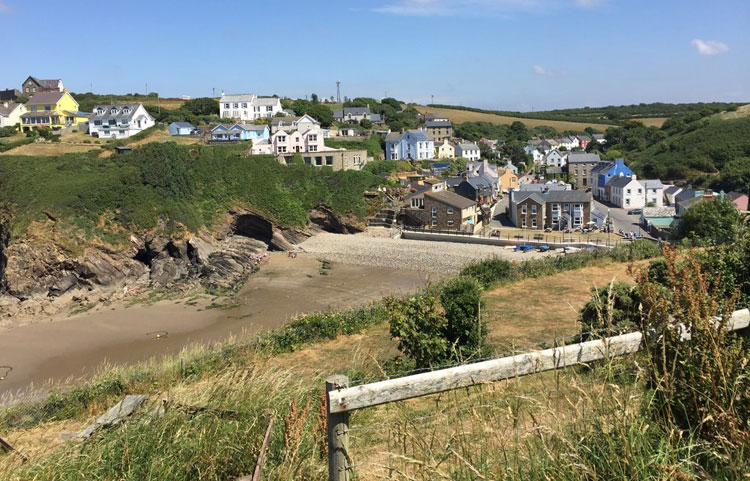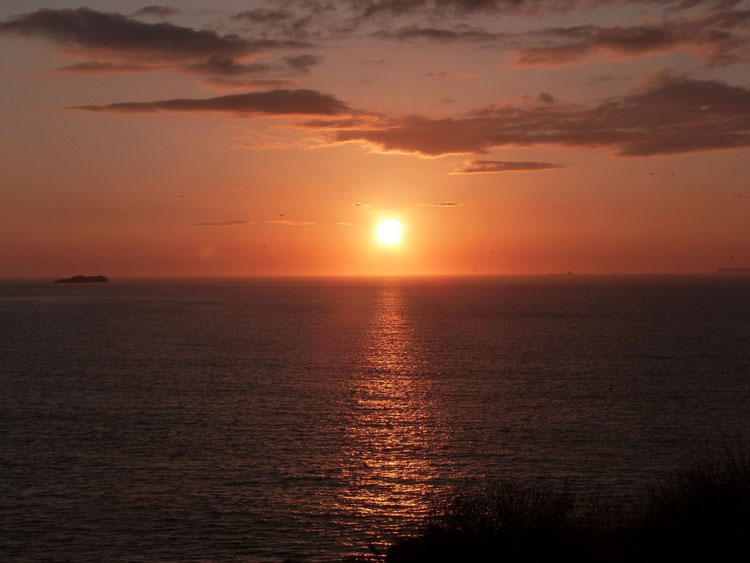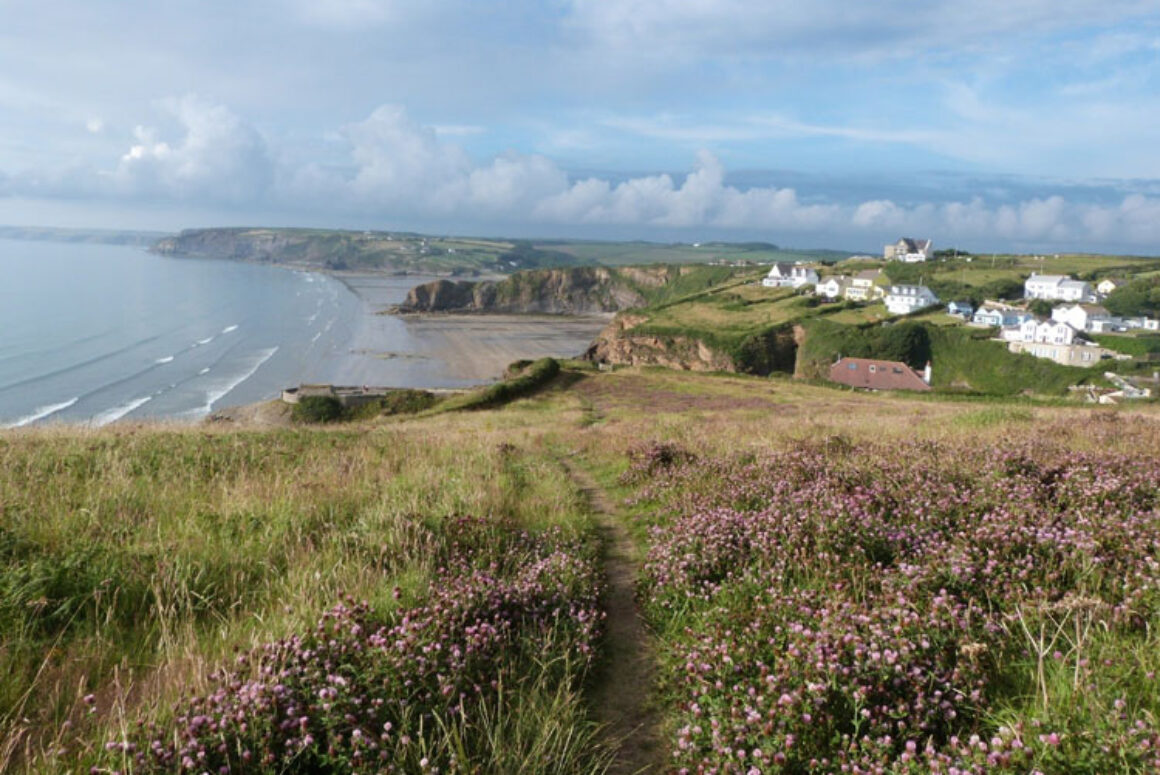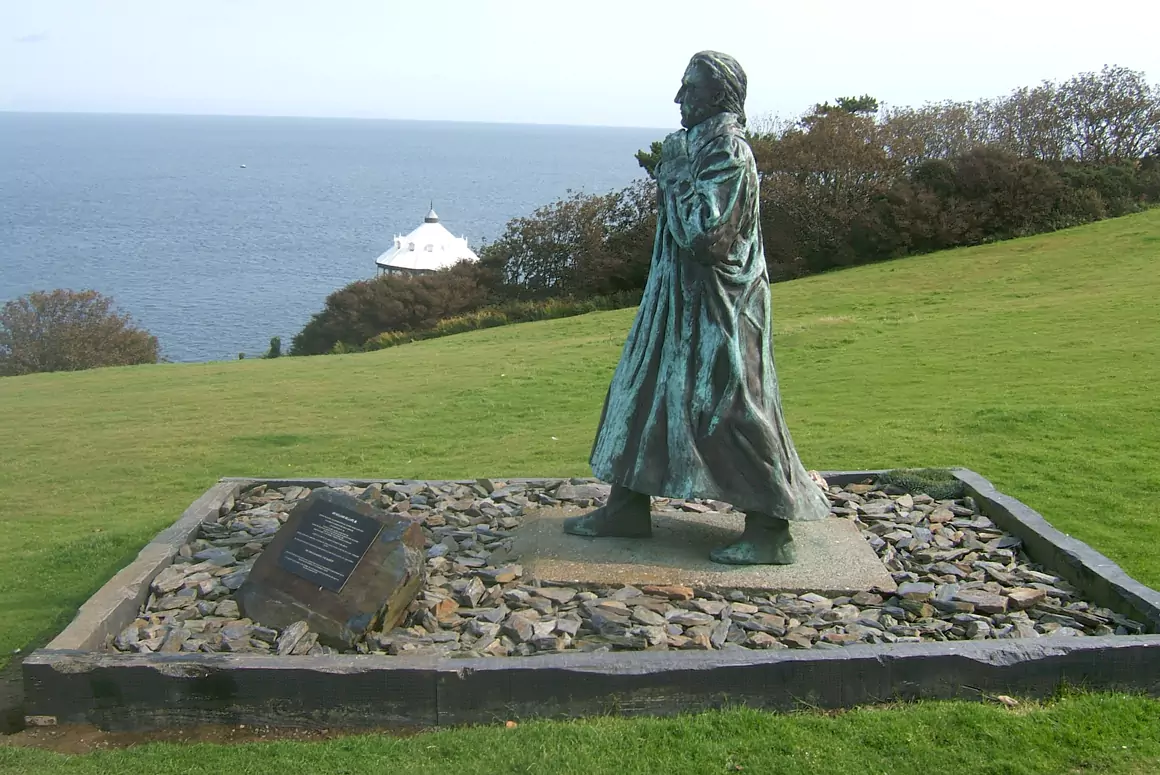![]()
A jolt. At once, I race to pull my line up. “I’ve got one!” I cheer. My dad and brother rush to get their lines in the water too. Smooth and quick, that’s the key. I peer over the side of the boat trying to make out any glimmers in the infinite shadows. The line leaves a salty residue on my legs as it whizzes over them, pooling in the bottom of the boat. I see flashes in the darkness! 3? No, there’s 5! I call to my Dad as I dangle my catch over the side of the boat. He helps me unhook them and fights to get them into the bucket. Mackerel scales shimmer in the sunlight like diamonds and sapphires. In that moment, they feel just as precious. And as I swing my line back into the water, I gaze at our treasure.
On days when we go out on the boat, Dad will wake me up around 5:30am (because apparently all the fish go away before the time normal people wake up). I don’t mind much though because there’s something exciting, unexplored, fleeting about the early morning. I will have a cup of tea, a handful of cereal and then, we go.
When I step outside, I am embraced by the mid-summer air and early morning brightness. The wind is light because, frankly, our little boat would be toppled over by anything stronger. I have to lug a lobster pot down the steep hill from my grandparents’ house to the village. We turn left into the boat yard. That is where Fiddler’s Green is kept. My dad named our boat after some probably terrible song. Fiddler’s is nothing fancy. She’s less than a metre across, a fiberglass dingy really but, for our purposes, she works perfectly. We pack up Fiddler’s with everything we need: the pots, fishing lines, bailer, oars, and more importantly in my opinion, a chopping board, knife, salt, lemon, and soy sauce.
Dad and my brother pull the boat down to the slipway. I supervise, which is hard work, but somebody has to do it. There are early morning swimmers in the bay; their brightly coloured swimming caps bobbing like little buoys that have come free from their moorings. Beside the slipway are some far more serious fishermen, wrapped in yellow. Their sturdy boats make Fiddler’s look about as seaworthy as a milk carton. Then, we begin faffing in front of our audience of sniggering fishermen, turning about, bobbing up and down, forgetting something, floating away, running back with the forgotten item, flapping oars, losing the bung, calling out, helplessly pulling on the engine, chocking it, pulling again. Finally, we totter away.

Nowadays, I often drive. The first time I did, I remember panicking, feeling as if the sea was always trying to steer me the opposite way to where I wanted to go. I look back at the rocky beach that I’ve spent my whole life scouring for heart-shaped pebbles, the village green where my brother managed to slice his ear in a particularly boisterous football match, the sheltered cliffs that he and I would climb up to find ledges to make dens on, the wall we all sit on with our drinks and chips from The Swan, the rockpools which I used to hunt for gobies, shore crabs and starfish, the sand that we made barricades from to see how long we could survive before the tide got to us, The Point which we jump from into the sea and Sheep Dip, the beach next door to Little Haven, where we found a smashed up lifeboat after the 10 year storm.
As Little Haven grows smaller, all you see is my grandparents’ house on top of the cliff: a yellow beacon shinning across the bay.
About a mile from the shore is Stack Rock, a great head protruding from the blue. We are headed for the channel between it and the shore. That is where the mackerel are, or at least that’s what my Dad says. On the way out we stop to drop off the pots. I manoeuvre us closer to the cliff. For luck, we all kiss the buoy before throwing it to the sea. We will come back tomorrow to check the pots for spider crabs and lobsters.
When I am not driving, I scan around the boat for sea gooseberries and jellyfish: moons, lion’s manes and Portuguese-man-of-wars. You see, I hate jellyfish and jellyfish hate me. They have ruined far too many beach days to fool me with their ‘pretty’ colours and allegedly ‘aimless’ bobbing. And I am not sure if you know what the commonly used remedy for a jellyfish sting is… but if you do, then I’m sure you will understand why this has also created some less than pleasant memories. However, there is a strange thrill in seeing them but knowing their noodley tentacles can’t sting me this time.

Eventually, we reach our destination. The engine halts. We pull up fish after fish; mackerel mostly, but also pollock, cod, and we have even caught a queen scallop on the hand lines before. Often, I lie back on the seat and look up at the sky, water, picked up in the breeze, kissing my face. Once we have caught usually more than enough, we gut the fish and cut them into little pieces (this is where the lemon, salt and soy sauce come in). The fish is so fresh you can still taste the sea.
Now, home in Dollar, no sea to be found, I mourn the current loss of these experiences. Writing them down is more bitter than sweet. Often, I find it uncomfortably easy to lose sight of my identity and who I really am; I think I was designed to breathe salty air, to cheer as I catch mackerel, and to watch seagulls gather in clouds about me. It is freeing to be immersed in a place where I feel so entirely ‘me’. I think that is what I miss the most.
I know that we are all mourning our own current losses. I know that sometimes it feels as if they are permanent. But we are all just stranded in a strange and unfamiliar bay, fearfully waiting for the tide to go out and reveal a safe path back. And all tides turn.
It is about 8am when we start to potter home. My mum will not even be up yet. I can still see my grandparents’ house shining out even from here. Across the boat is the treasure chest of fish. I know that when we get back my gran, Rosie, will cook some up for breakfast.
I am looking forward to when I can go back to Little Haven.
This tide will turn too.





